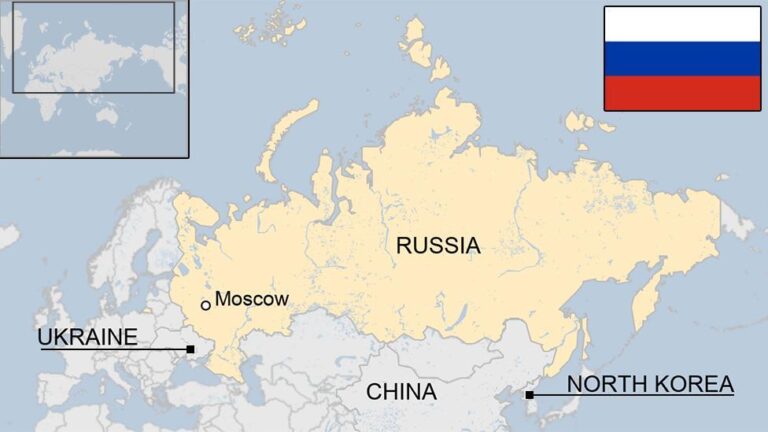Russia is making renewed efforts to strengthen its strategic partnership with China and India, despite longstanding trust issues among the three Asian powers. As geopolitical tensions intensify globally, Moscow appears keen to solidify alliances that can counterbalance Western influence. However, the complex history and competing interests between these nations continue to cast a shadow over their cooperation, raising questions about the durability of this trilateral rapprochement. This move comes amid shifting global dynamics, where Russia, China, and India each seek to navigate an increasingly multipolar world order.
Russia Reignites Strategic Partnership Efforts with China and India Amid Lingering Distrust
In a bid to strengthen its geopolitical stance, Moscow is intensifying diplomatic and economic engagements with Beijing and New Delhi, despite underlying suspicions that have historically complicated these relationships. The renewed push focuses on leveraging mutual interests in energy, infrastructure development, and defense cooperation. Russian officials emphasize the necessity of pragmatic collaboration, recognizing that while trust remains fragile, the shared goal of counterbalancing Western influence is a compelling unifier for all three nations.
Key areas of focus in the trilateral effort include:
- Energy Security: Expanding cross-border pipelines and joint ventures in oil and natural gas sectors.
- Technology Transfer: Enhancing cooperation on advanced military technology and civilian applications.
- Regional Stability: Coordinated diplomatic efforts to address conflicts in Central Asia and the Indo-Pacific.
| Aspect | Russia’s Position | China & India Concerns |
|---|---|---|
| Trust | Seeks increased transparency | Cautious due to past geopolitical competition |
| Economic Goals | Energy exports and infrastructure funding | Balanced growth and technological sovereignty |
| Defense | Joint exercises and arms sales | Maintaining strategic autonomy |
Analyzing the Geopolitical Implications of Russia’s Alignment Moves in the Asia-Pacific Region
Russia’s renewed push to strengthen ties with China and India in the Asia-Pacific stands at a complex crossroads of cooperation and caution. Despite enduring mutual suspicions and divergent strategic interests, the triad appears incentivized to project a united front against Western influence. Moscow’s maneuvers highlight a pragmatic approach, seeking economic partnerships and military alignment that could recalibrate power dynamics in the region. Key factors shaping this alignment include:
- Shared dissatisfaction with U.S.-led institutions and economic sanctions.
- Energy export opportunities amid shifting global supply chains.
- Regional security challenges including North Korea’s unpredictability and maritime disputes.
However, the underlying fissures among the three powers cannot be overlooked. China’s strategic rivalry with India over border territories and historic mistrust towards Russia’s balancing act mean collaboration remains fragile. The following comparative overview reveals the interests balancing act each country plays:
| Country | Primary Interest | Main Concern |
|---|---|---|
| Russia | Economic leverage and military foothold | Balancing influence without alienation |
| China | Regional dominance and Belt & Road expansion | Containment by U.S. alliances |
| India | Strategic autonomy and economic growth | Border security and regional stability |
Recommendations for Navigating the Complex Dynamics of Russia China and India Relations
In order to effectively navigate the labyrinthine relations between Russia, China, and India, it is essential to cultivate flexible diplomatic strategies that acknowledge each player’s distinct geopolitical priorities and historical mistrust. Trust deficits between these powers require policymakers to emphasize transparent communication channels and conflict resolution mechanisms grounded in mutual respect. Strategic areas such as energy cooperation, technology exchange, and regional security frameworks should be approached with pragmatic contingency plans instead of relying solely on ideological alignment or historic partnerships.
Moreover, fostering multilateral engagement through established platforms like the Shanghai Cooperation Organisation, alongside bilateral dialogues, can create incremental confidence-building measures. Key recommendations include:
- Regular high-level summits: To maintain open dialogue and manage emerging tensions before they escalate.
- Joint economic initiatives: That balance shared interests while respecting each nation’s sovereignty and economic policy.
- Conflict de-escalation protocols: Especially relevant to border disputes and strategic competition zones.
| Focus Area | Russia | China | India |
|---|---|---|---|
| Energy | Gas exports, oil deals | Infrastructure investment | Resource diversification |
| Security | Military modernization | Regional dominance | Border defense |
| Trade | Strategic partnerships | Export expansion | Market access |
In Retrospect
As Russia continues to navigate its complex relationships with China and India, its renewed overtures highlight a strategic pivot amid shifting global alliances. Despite underlying trust issues, the pursuit of closer cooperation underscores a shared interest in counterbalancing Western influence. How these dynamics will evolve remains a critical question for regional and international observers alike.




